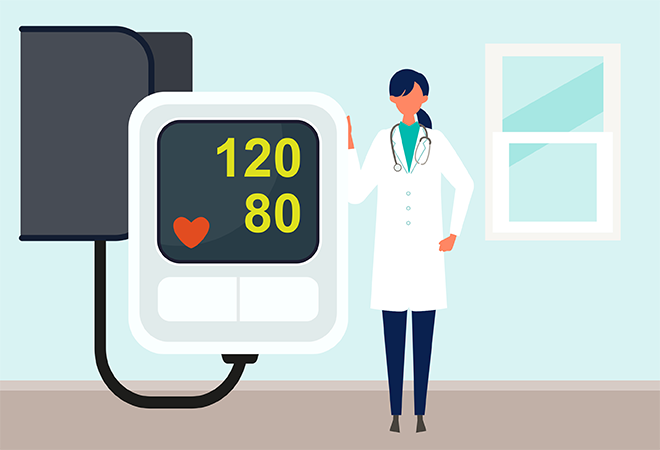Understanding and Managing Hypertension
Almost half of American adults have high blood pressure (source). This includes people who don’t know they have it, young adults, and even people who seem otherwise healthy.
Almost half of American adults have high blood pressure (source). This includes people who don’t know they have it, young adults, and even people who seem otherwise healthy.
Hypertension, commonly called high blood pressure, is known as the “silent killer.” It doesn’t have obvious symptoms, so many people don’t know they have it. Left untreated, high blood pressure can lead to life-threatening events, such as stroke, heart attack, and heart or kidney failure.
Risk factors for high blood pressure are varied.
To achieve or maintain a healthy blood pressure:

Blood pressure is always given as two numbers.
If your blood pressure reading is 120/80, you say it is “120 over 80.”
*Table from American Heart Association
With so many places to monitor your blood pressure, there’s no reason to let the silent killer sneak up on you. You can get your blood pressure checked:
Find out more about managing high blood pressure with these resources:
LifeWise is committed to providing quality healthcare coverage so you can live your best life. Access to affordable, whole-person, primary care.